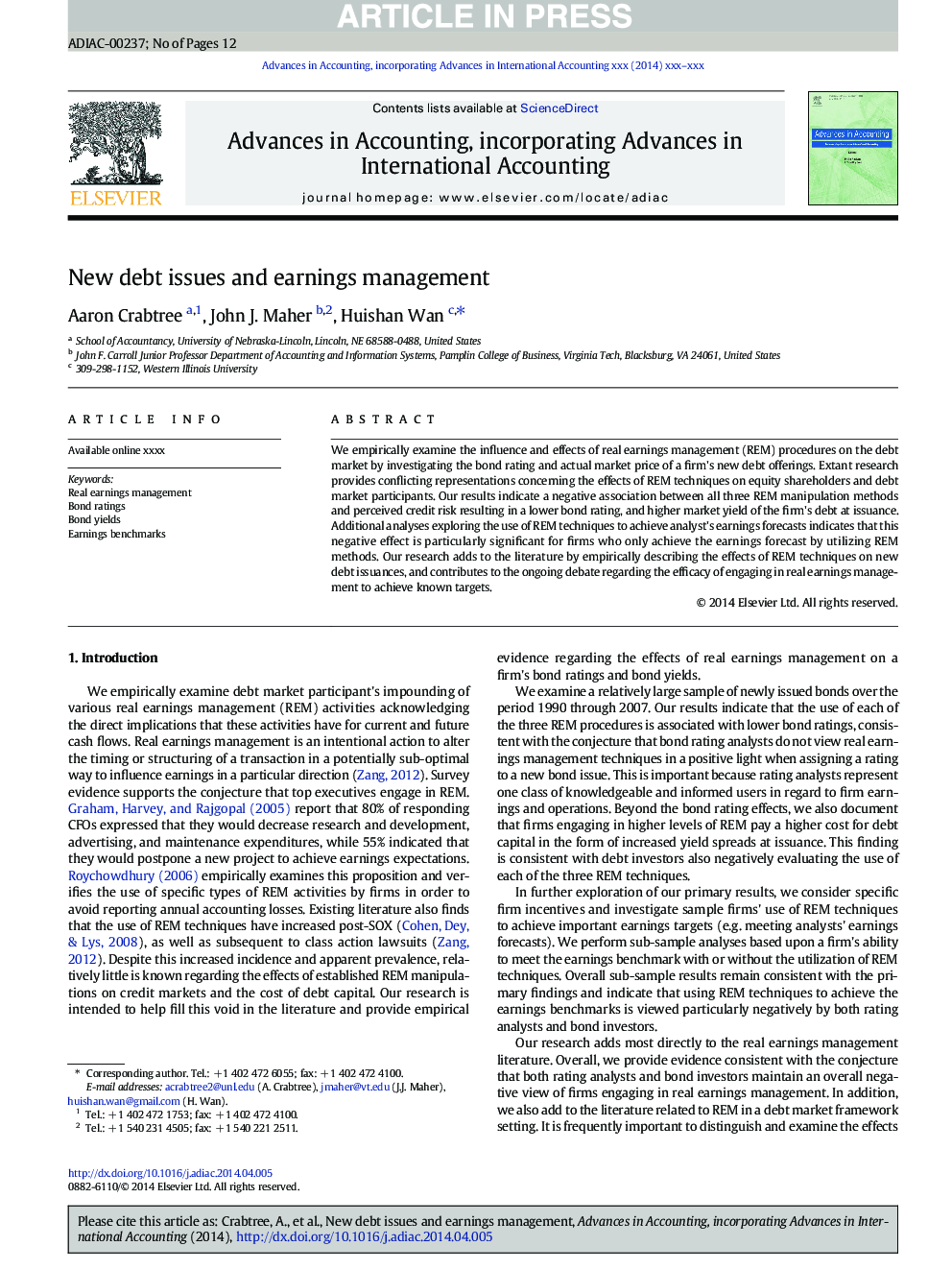| Article ID | Journal | Published Year | Pages | File Type |
|---|---|---|---|---|
| 7340409 | Advances in Accounting | 2014 | 12 Pages |
Abstract
We empirically examine the influence and effects of real earnings management (REM) procedures on the debt market by investigating the bond rating and actual market price of a firm's new debt offerings. Extant research provides conflicting representations concerning the effects of REM techniques on equity shareholders and debt market participants. Our results indicate a negative association between all three REM manipulation methods and perceived credit risk resulting in a lower bond rating, and higher market yield of the firm's debt at issuance. Additional analyses exploring the use of REM techniques to achieve analyst's earnings forecasts indicates that this negative effect is particularly significant for firms who only achieve the earnings forecast by utilizing REM methods. Our research adds to the literature by empirically describing the effects of REM techniques on new debt issuances, and contributes to the ongoing debate regarding the efficacy of engaging in real earnings management to achieve known targets.
Related Topics
Social Sciences and Humanities
Business, Management and Accounting
Accounting
Authors
Aaron Crabtree, John J. Maher, Huishan Wan,
